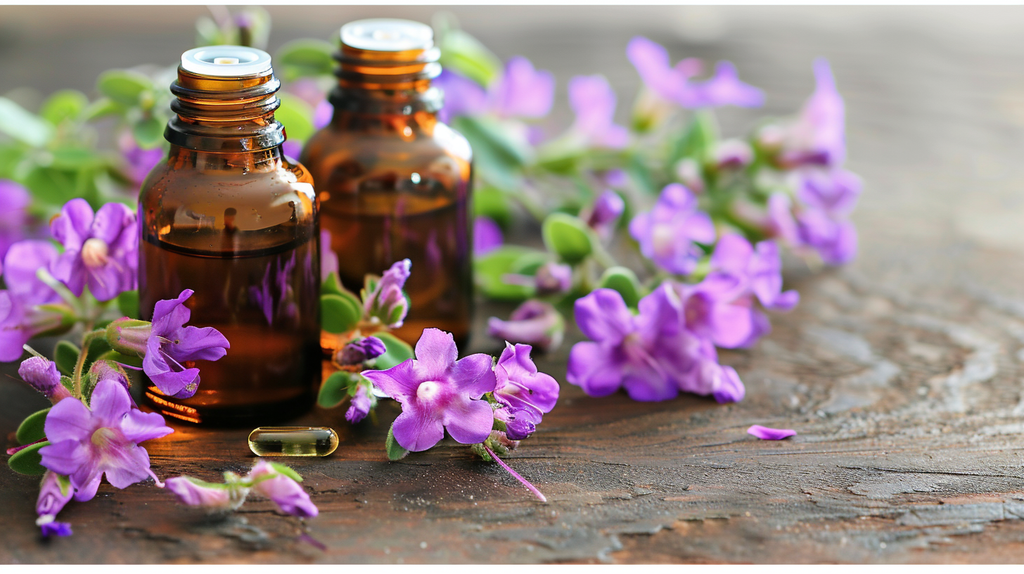Feeling a bit overwhelmed by the sheer volume of medications out there? You're not alone. Many people are turning to natural approaches to address their health concerns.
As a qualified naturopath, I've witnessed firsthand the positive impact these natural remedies can have on a person's well-being. But with so much information swirling around, it's easy to feel lost.
This guide will equip you with the basics of herbalism and empower you to explore the potential of naturopathic remedies for common ailments.
Key Takeaways
| What is naturopathic herbalism? | A traditional practice using plants to promote health and well-being |
|---|---|
| Are herbal remedies safe and effective? | Yes, but consult a naturopath for personalized guidance |
| What common ailments can benefit from herbs? | Anxiety, digestion issues, sleep problems, and more |
| How do I know which herbs are right for me? | A naturopath can create a custom herbal plan |

Understanding the Power of Plants
Think of plants as nature's pharmacy. For centuries, different cultures have relied on the therapeutic properties of herbs to treat a wide range of health concerns. Modern science is now catching up, with research studies increasingly validating the traditional uses of many plants.
For instance, a recent review published in the Journal of Natural Products highlighted the potential of Ashwagandha, a popular Ayurvedic herb, for reducing anxiety symptoms. Similarly, a meta-analysis published in Biomedicine and Pharmacotherapy found that turmeric, with its active ingredient curcumin, demonstrates promising anti-inflammatory properties.
Naturopathic Herbalism: A Holistic Approach
Naturopathic herbalism goes beyond simply popping a pill. It's a holistic approach that considers the root cause of an imbalance and aims to support the body's natural healing abilities. A qualified naturopath will consider your individual health picture, including your diet, lifestyle, and any medications you're taking, before recommending specific herbs.

Let's Talk Safety:
While natural doesn't always equate to harmless, many herbs have a long history of safe use. However, it's crucial to remember that some herbs can interact with medications or have side effects. This is why consulting with a qualified naturopath is paramount. They can guide you on safe and appropriate use of herbs to maximize the benefits and minimize any potential risks.
Common Ailments and Herbal Allies
- Research suggests that herbs like chamomile and lavender may help promote relaxation and ease anxiety.
- Peppermint and ginger are time-tested remedies for soothing indigestion and nausea.
- Even sleep problems can be addressed naturally. Herbs like valerian root and passionflower have shown promise in improving sleep quality.
Important to Remember:
This article provides a brief overview, and it's not a substitute for professional advice. Every person is unique, and the best herbal approach will vary depending on your individual needs.

Q&A: Your Naturopathic Herbal Remedy FAQs Answered
Q: Can I take herbal remedies with my medications?
A: Always consult with your naturopath to ensure there are no interactions between herbs and medications you're taking.
Q: How long does it take for herbal remedies to work?
A: The timeframe can vary depending on the herb and the condition. Some herbs offer quick relief, while others take time to accumulate their effects. Your naturopath can provide specific guidance.
Q: Where can I buy high-quality herbal remedies?
A: Your naturopath can recommend reputable sources for purchasing high-quality and ethically sourced herbs.
Naturopathic Herbal Remedies: Unveiling Nature's Secrets
Understanding Different Herbal Actions
Herbs work their magic in various ways. Here's a glimpse into some common actions to consider:
-
Adaptogens: These superstars help the body adapt to stress, like Ashwagandha and Rhodiola rosea [9, 10]. Feeling overwhelmed? These herbs might be your allies. Here's some research on Ashwagandha: https://www.ncbi.nlm.nih.gov/pmc/articles/PMC10147008/ and Rhodiola rosea: https://www.ncbi.nlm.nih.gov/pmc/articles/PMC9228580/
-
Digestive Bitters: Promote healthy digestion by stimulating digestive juices. Think dandelion root and gentian root [11, 12]. Struggling with bloating or indigestion? These bitter herbs might offer relief. You can find some interesting research on dandelion root here: https://pubmed.ncbi.nlm.nih.gov/35405251/ and gentian root here: https://www.ncbi.nlm.nih.gov/pmc/articles/PMC5578200/
-
Demulcents: Soothe and protect irritated tissues. Think slippery elm and marshmallow root [13, 14]. Got a sore throat or cough? Demulcent herbs can be a calming presence. Here's some information on slippery elm: https://pubmed.ncbi.nlm.nih.gov/32151878/ and marshmallow root https://pubmed.ncbi.nlm.nih.gov/30000899/
- Diaphoretics: Induce sweating to expel toxins and reduce fevers. Think elderflower and yarrow [15, 16]. Feeling under the weather with a fever? These herbs might help you break a sweat and feel better. Discover more about elderflower here: https://pubmed.ncbi.nlm.nih.gov/33827515/ and yarrow here: https://pubmed.ncbi.nlm.nih.gov/35639782/

Choosing the Right Herbs for You
With a plethora of herbs available, selecting the right ones can feel daunting. But fear not! Here's where a naturopath's expertise comes in. We consider several factors to create a personalized herbal plan:
-
Your health concerns: We address the root cause of your issues, not just the symptoms.
-
Your body constitution: Naturopathy recognizes different body types and tailors herbs accordingly.
-
Potential interactions: We ensure safe use by considering any medications you're taking.
-
Quality and source: We recommend high-quality, ethically sourced herbs for optimal benefits.
Naturopathic Herbal Remedies vs. Conventional Medications
The choice between naturopathic remedies and conventional medications is a personal one. Here's a simplified comparison to help you decide:
Naturopathic Herbal Remedies
- Generally gentler: May have fewer side effects than some medications.
- Supportive: Aims to address the root cause and support the body's natural healing abilities.
- Holistic approach: Considers your overall health and well-being.
- May take time: Effects can take time to accumulate, depending on the herb.
Conventional Medications
- Can be fast-acting: Offer rapid relief for certain conditions.
- Target specific symptoms: Designed to address specific symptoms effectively.
- May have side effects: These can vary depending on the medication.
- Not always address the root cause: May not address the underlying cause of the issue.
The Future of Naturopathic Herbalism
The future of naturopathic herbalism is bright! Research continues to explore the potential of plants for various health conditions. Here are some exciting trends to keep an eye on:
-
Integration with modern medicine: Naturopathic and conventional approaches are increasingly being used together for a more comprehensive approach to healthcare.
-
Focus on personalized medicine: Tailoring herbal remedies to individual needs and genetics for optimal results.
- Standardization of herbal products: Ensuring consistent quality and safety of herbal remedies.
Naturopathic herbal remedies offer a promising approach to promoting well-being and managing various health concerns. By understanding the different herbs, their actions, and how they work within a naturopathic framework, you can make informed decisions about incorporating them into your health journey. Remember, a qualified naturopath is your partner in exploring the world of herbal remedies and navigating your path to natural wellness.
Ready to Explore the Potential of Naturopathic Herbal Remedies?
If you're curious about how naturopathic remedies can benefit you, I invite you to schedule a consultation at our naturopathic clinic. We'll work together to create a personalized plan that addresses your unique needs and empowers you to take charge of your health.
Check out our other articles here:
Feeling a Bit Off? Food Could Be the Missing Piece: Exploring Naturopathic Nutrition
10 Simple Ways to Unleash Your Body's Natural Healing Power with Naturopathy
Naturopathic Wellness Plans: A Step-by-Step Guide to Feeling Your Best
Embrace the Power of Plants and Take Charge of Your Well-being
The world of naturopathic herbal remedies is vast and exciting. By working with a qualified naturopath, you can explore the potential of plants to support your health journey and empower yourself to take a more natural approach to well-being. Remember, knowledge is power, and this guide is just the beginning!








